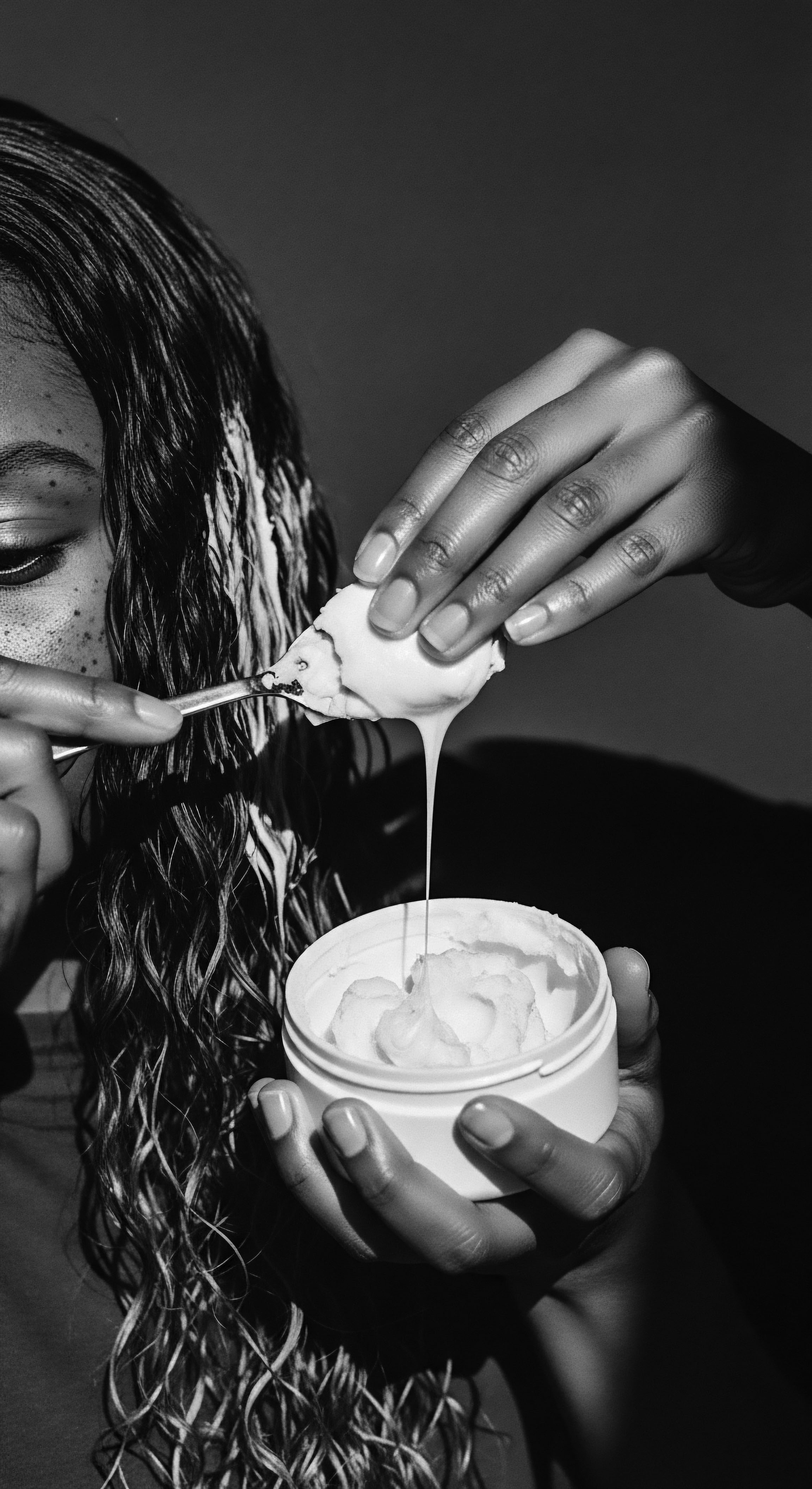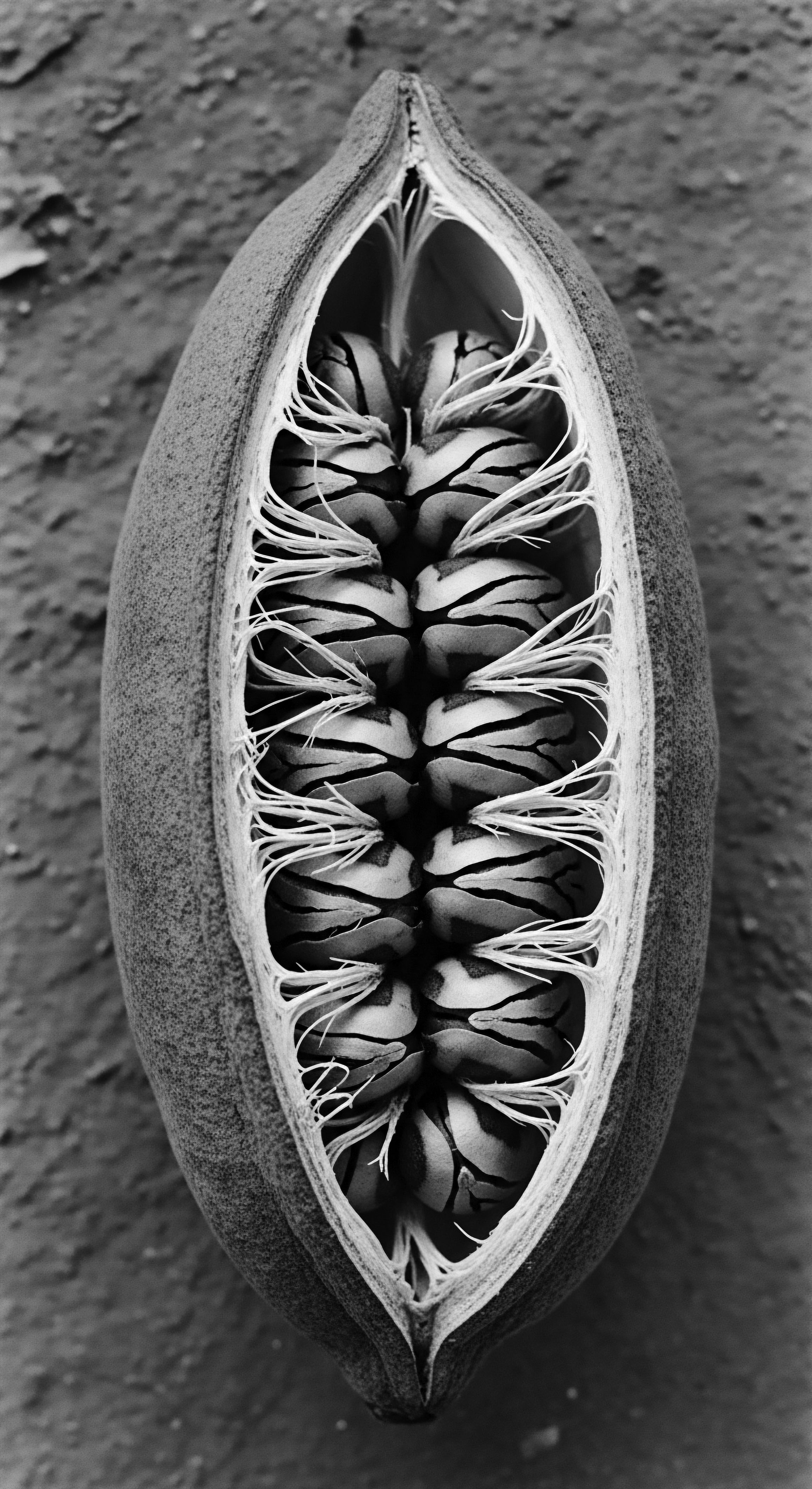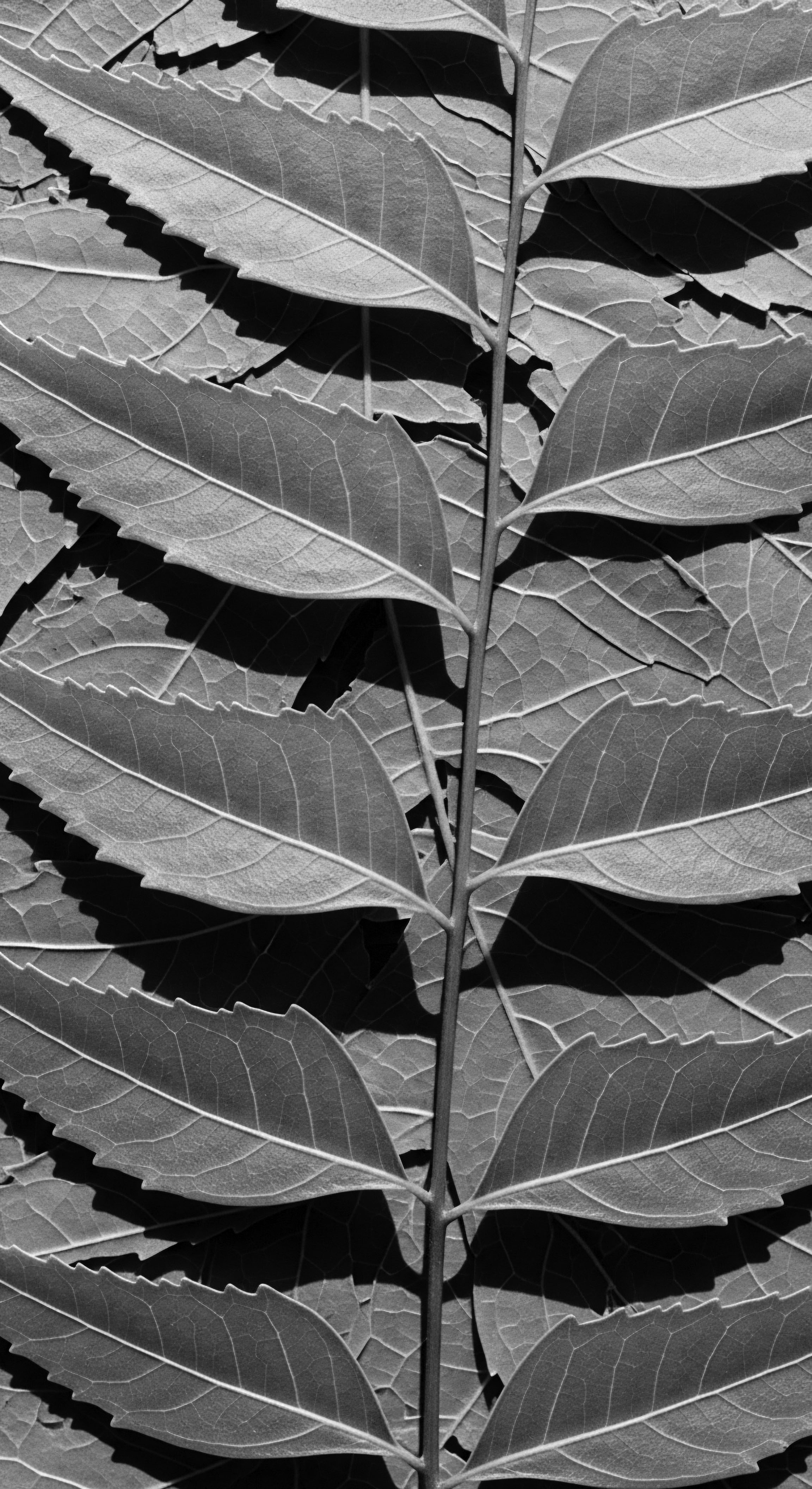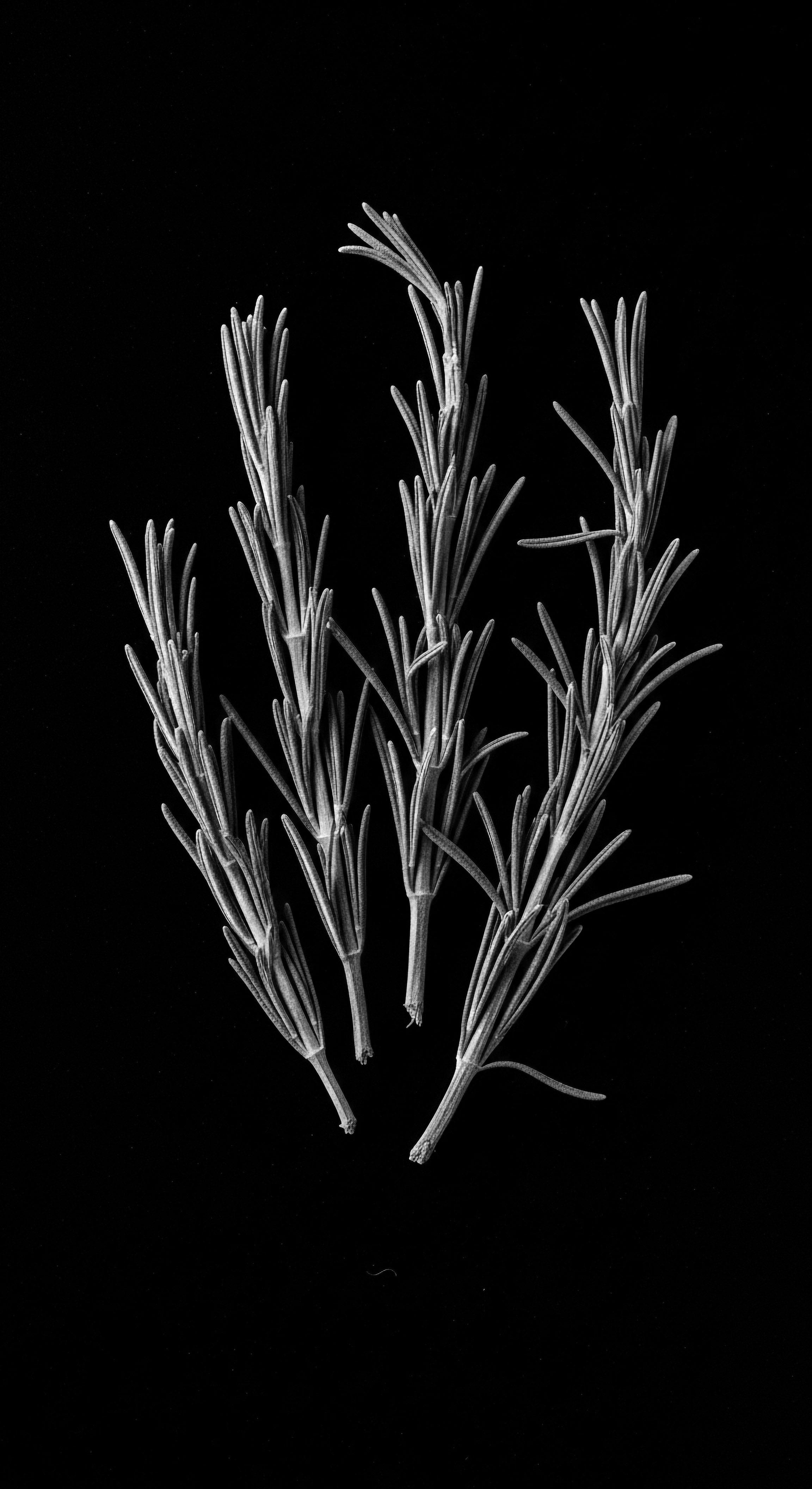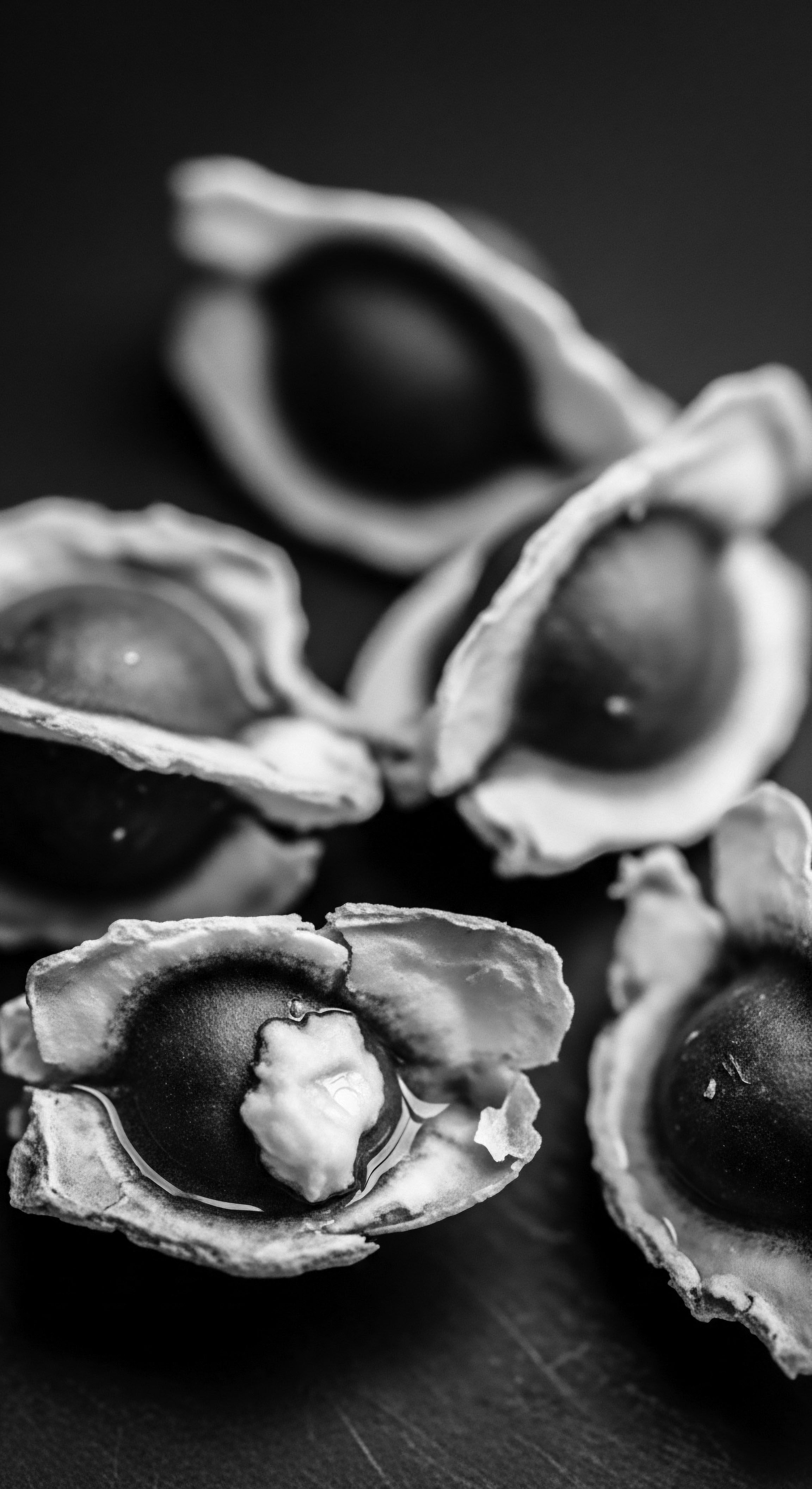
Fundamentals
Moringa Oil, a golden liquid extracted from the seeds of the Moringa oleifera tree, stands as a venerable cornerstone in the lexicon of natural care, particularly for textured hair. This botanical treasure, often referred to as the “Miracle Tree” or “Tree of Life,” holds an ancient heritage, its presence woven into the very fabric of ancestral wellness practices across diverse continents. Its fundamental meaning extends beyond a mere botanical extract; it embodies a legacy of intuitive wisdom, a testament to humanity’s enduring connection with the Earth’s restorative bounty. For those new to the realm of textured hair care, especially within Black and mixed-race communities, understanding Moringa Oil begins with acknowledging its deep historical roots and the profound role it played in daily rituals.
From the sun-drenched landscapes of its native India and parts of Africa, the Moringa tree yielded its precious seeds, from which oil was meticulously pressed. This oil, known in antiquity as “Ben Oil” due to its high concentration of behenic acid, possessed a remarkable stability and a gentle, nourishing quality. Its earliest historical contexts reveal its use not merely as a cosmetic agent but as a versatile component of life itself. Ancient civilizations, such as the Egyptians, revered this oil, utilizing it for embalming, as a base for perfumes, and significantly, for maintaining the vitality of their skin and hair.
Jars of Moringa oil have been unearthed in ancient Egyptian tombs, underscoring its esteemed status and enduring value in beauty rituals that transcended earthly existence (Panya Natural). This historical record speaks to a foundational recognition of its preservative and beautifying properties, a wisdom passed through generations.
The inherent meaning of Moringa Oil for textured hair care, from its inception, rests in its capacity to provide essential nourishment and protection. Ancestral communities, acutely attuned to the needs of their hair in varying climates, recognized the oil’s ability to seal in moisture, a critical function for hair types prone to dryness. Its lightweight texture, a property that sets it apart from many other natural oils, allowed for deep penetration without weighing down strands, a benefit keenly felt by those with denser, coily, or kinky textures. The wisdom of these early applications highlights a profound understanding of hair biology long before modern scientific nomenclature existed.
Moringa Oil, at its core, represents an ancestral legacy of natural care, offering fundamental nourishment and protection for textured hair through its unique properties.
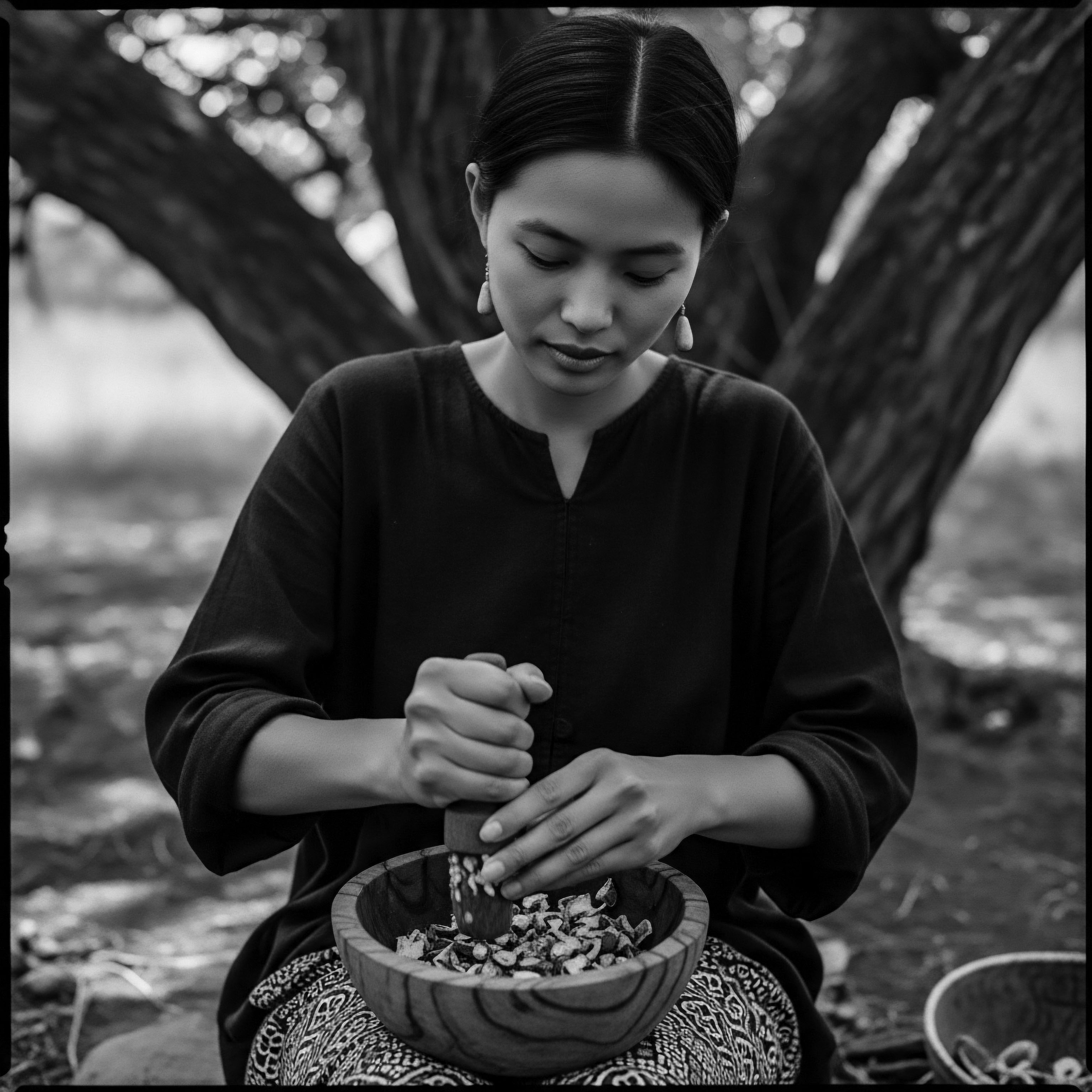
Echoes from the Source: Geographic Origins and Traditional Lore
The geographical distribution of the Moringa oleifera tree spans from the Himalayan foothills of northern India, extending through Southeast Asia, and deeply rooting itself across vast stretches of Africa. This wide dispersal facilitated its integration into diverse cultural practices, each community attributing its own lore and specific uses to the tree. In many African societies, the Moringa tree is affectionately known as the “Miracle Tree,” a designation that speaks volumes about its multifaceted contributions to health and daily life. Every part of the tree ❉ leaves, pods, flowers, and seeds ❉ was recognized for its utility, reflecting a holistic approach to resourcefulness that defined ancestral living (The Community Revolution, 2024).
The traditional use of Moringa oil in these regions was not confined to hair; it served as a remedy for various ailments, a food supplement, and a purifier of water. This breadth of application underscores the plant’s profound significance within traditional medicine systems. For hair, its oil was likely a component of protective styling practices, scalp treatments, and daily conditioning routines.
The knowledge of how to cultivate, harvest, and process Moringa seeds for oil extraction was a communal practice, often passed down through matriarchal lines, ensuring the continuity of this valuable heritage. The simple act of pressing oil from these seeds was a ritualistic connection to the land, a practice imbued with purpose and respect for nature’s gifts.
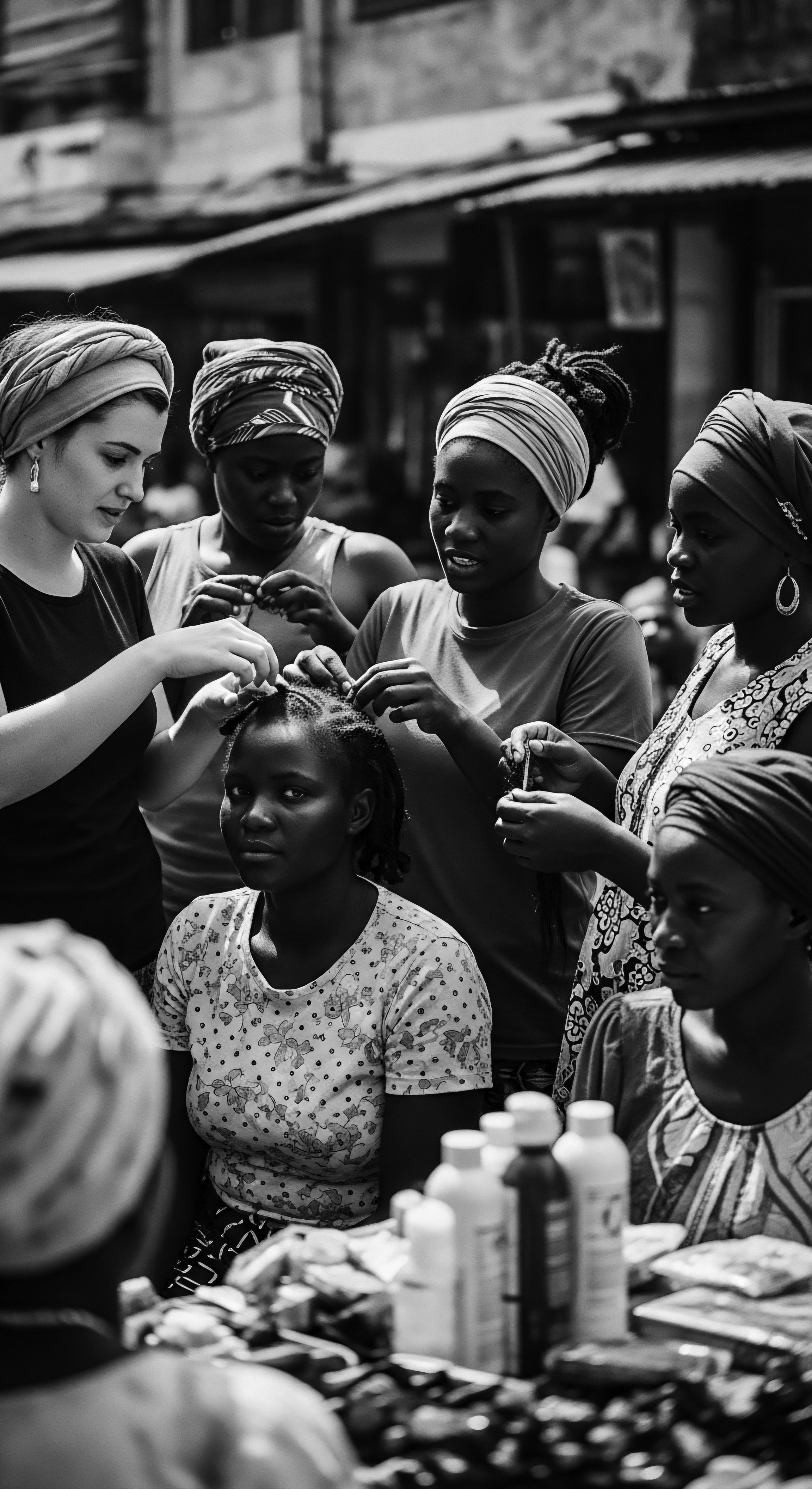
Ancestral Practices and Early Hair Care
Across various ancestral communities, the definition of hair care extended far beyond mere aesthetics; it was intrinsically linked to identity, spirituality, and well-being. Hair served as a canvas for cultural expression, a marker of status, and a repository of ancestral memory. The use of natural oils, including Moringa, played a central role in these traditions.
For instance, in some West African communities, the practice of hair oiling was a communal ritual, often performed by elders, serving as a moment of bonding and the transmission of knowledge. These sessions were not just about applying oil; they were about nurturing the strands, massaging the scalp, and sharing stories, strengthening the tender thread of heritage.
The earliest interpretations of Moringa Oil’s meaning in hair care centered on its ability to fortify and preserve. Given the environmental conditions in many of its native lands ❉ intense sun, dry air, and sometimes harsh winds ❉ hair required robust protection. Moringa Oil, with its inherent moisturizing and barrier-forming properties, became an invaluable shield.
Its light texture meant it could be applied regularly without leading to heavy buildup, allowing the hair to breathe while remaining guarded against external aggressors. This protective aspect was paramount, contributing to the health and longevity of hair, which was often styled in intricate, time-consuming ways that needed to be maintained for extended periods.
The knowledge surrounding Moringa Oil’s application was deeply empirical, rooted in observation and generational trial. Communities understood that the oil provided a certain slip, aiding in detangling, a common challenge for textured hair. They observed its ability to impart a subtle sheen, signaling vitality and health. This practical understanding, passed down through oral traditions and lived experience, formed the initial, fundamental definition of Moringa Oil: a benevolent offering from the Earth, designed to honor and preserve the sacred strands.
Consider the practices in certain ancient Nubian communities, where natural oils were regularly incorporated into elaborate hair rituals. While specific documentation on Moringa’s direct use in all these contexts is still being unearthed, the broader reliance on plant-based oils for scalp health, moisture retention, and styling speaks to a shared ancestral wisdom. The presence of oils in Egyptian tombs, including what was likely Moringa oil, suggests its widespread recognition for its preserving qualities, which would naturally extend to hair (Panya Natural). This historical context paints a picture of Moringa Oil as a revered substance, integral to ancient beauty and wellness systems.
The fundamental meaning of Moringa Oil, therefore, is rooted in its biological gifts and its ancient human application. It is a symbol of natural abundance and ancestral ingenuity, a fluid connection to practices that celebrated hair as a living extension of self and lineage. This initial understanding lays the groundwork for appreciating its more complex roles in contemporary textured hair care.
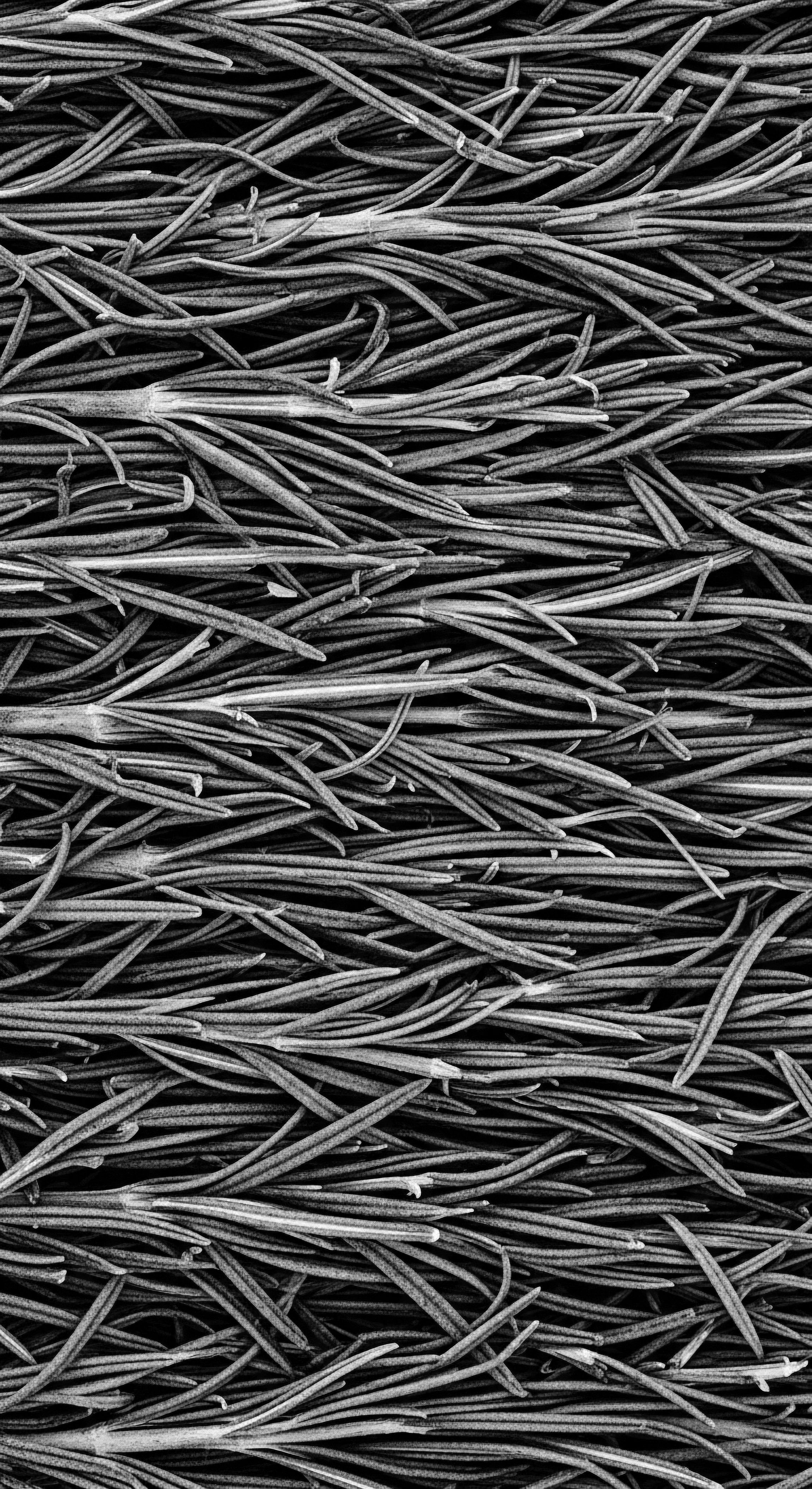
Intermediate
Stepping into an intermediate understanding of Moringa Oil for textured hair care reveals a dynamic narrative of heritage practices, continuously passed down and skillfully adapted across generations and geographies. The significance of this golden elixir deepens as we observe its practical applications within traditional and evolving hair care rituals, particularly for Black and mixed-race hair. Here, Moringa Oil is not a static concept but a living entity, its meaning reshaped by the hands that apply it, the songs that accompany its use, and the varied environments it encounters. The clarity of its benefits becomes more pronounced when viewed through the lens of continuity and adaptation, showcasing how ancestral knowledge sustains and transforms.
The practical application of Moringa Oil within these evolving traditions centers on its rich biochemical composition. This oil is characterized by a high content of oleic acid, a monounsaturated fatty acid that closely resembles the natural sebum produced by the scalp. This similarity allows Moringa Oil to be readily absorbed, providing deep conditioning without a heavy, greasy residue, which is especially beneficial for the unique structural needs of textured hair.
Furthermore, it contains other fatty acids such as palmitoleic, linoleic, and behenic acids, alongside a spectrum of vitamins, including A, C, and E, and minerals like zinc and iron (Typology, 2024; Hims, 2025; Ellemental). These components contribute to its remarkable ability to nourish, protect, and revitalize hair strands from the inside out.
Moringa Oil’s enduring value in textured hair care lies in its adaptable nature, seamlessly blending ancient wisdom with modern needs to sustain hair vitality across diverse cultural expressions.
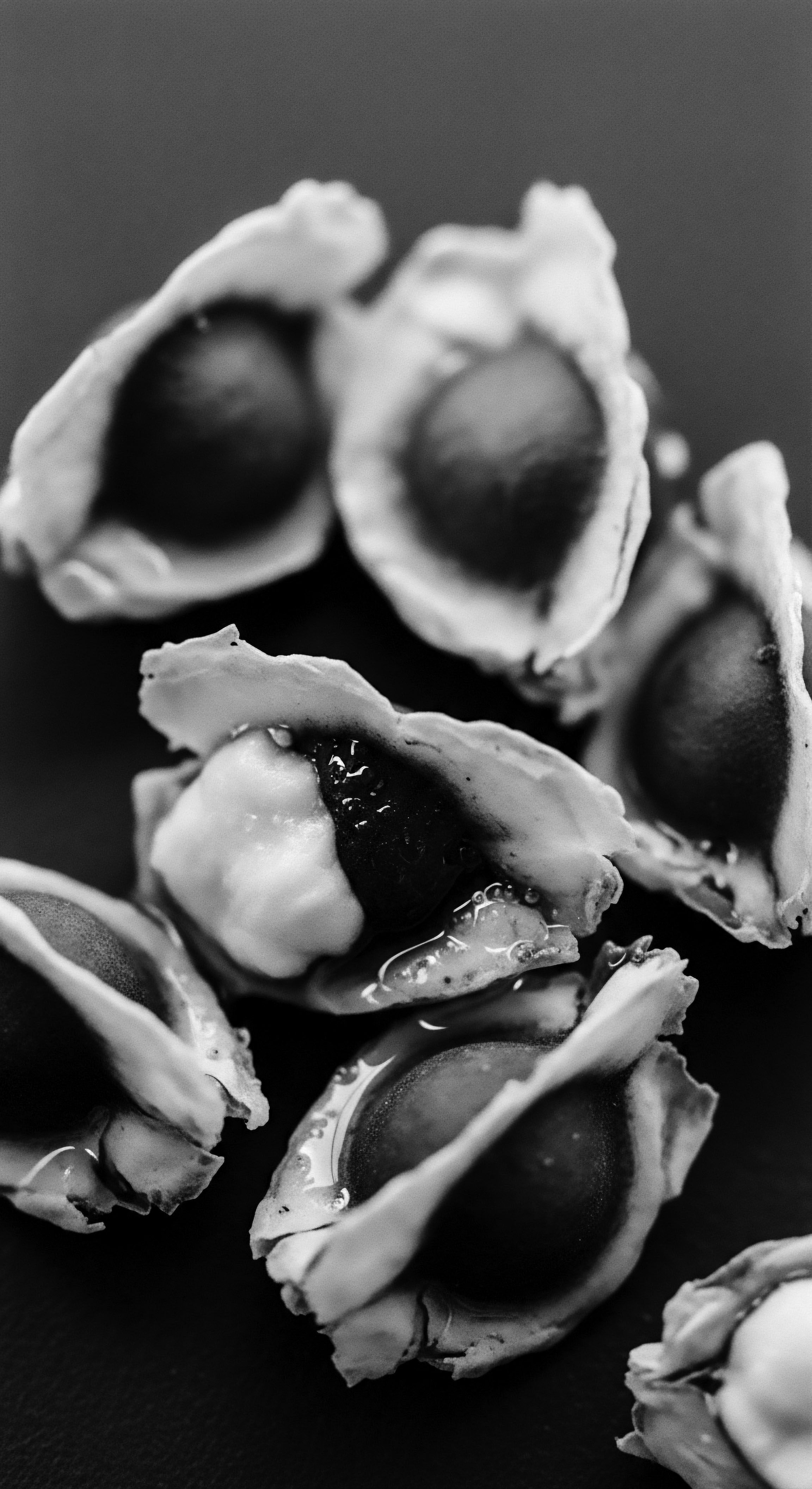
The Tender Thread: Continuity of Heritage Practices
The journey of Moringa Oil through the diaspora is a powerful testament to the resilience of cultural practices. As people of African descent were forcibly dispersed across the globe, they carried with them not only their memories and traditions but also the inherent wisdom of their ancestral lands, including knowledge of natural remedies. While direct cultivation of Moringa may not have been possible in all new environments, the principles of using nourishing oils for hair and scalp health persisted.
In many Afro-diasporic communities, practices such as regular hair oiling, scalp massages, and the use of natural ingredients became acts of self-preservation and cultural affirmation. Moringa Oil, or its functional equivalents, became part of this tender thread, connecting past and present.
One compelling aspect of this continuity is the integration of Moringa into traditional hair pomades and conditioning treatments. In regions like West Africa, for instance, traditional hair care often involves blending various natural butters and oils. While shea butter and palm kernel oil are widely known, Moringa Oil has also found its place, sometimes in combination with other herbs.
An ethnographic study on traditional Nigerian hair and beauty products highlights the celebration of ingredients like aloe vera, neem oil, henna, and Moringa for their nourishing, healing, and rejuvenating properties, often incorporated into hair masks and oils (My Sasun, 2023). This shows an unbroken chain of knowledge, where ingredients are chosen for their specific benefits to hair health and texture.
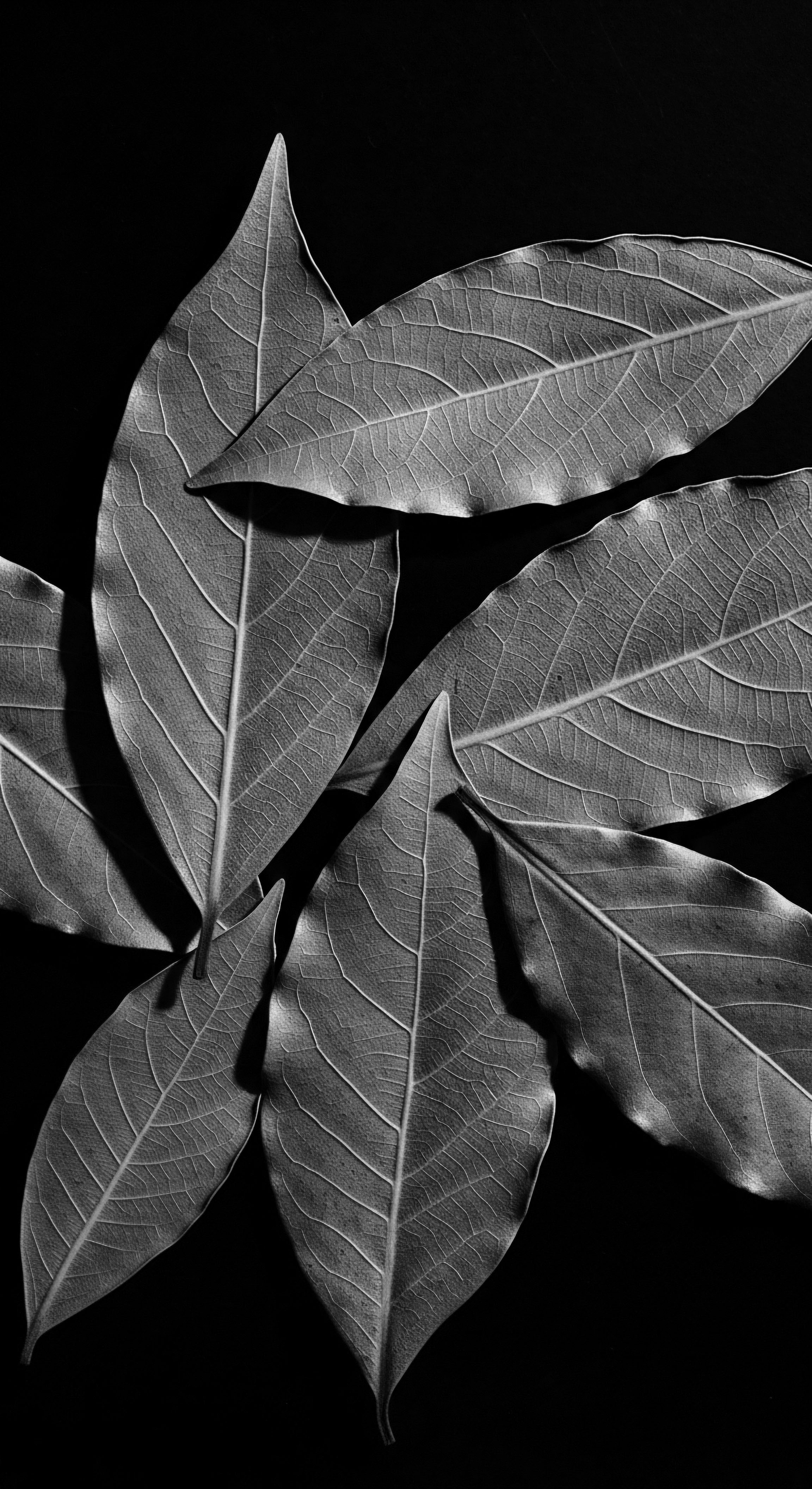
Adaptations and Innovations in Hair Rituals
The meaning of Moringa Oil expands as traditional uses adapt to new contexts and scientific understanding. For textured hair, which often experiences dryness and breakage due to its structural characteristics, Moringa Oil offers a potent solution. Its light consistency makes it suitable for frequent application without causing product buildup, a common concern for coily and kinky hair types.
- Pre-Shampoo Treatment ❉ A method passed down through generations, applying Moringa Oil as a pre-shampoo treatment allows its nutrients to penetrate deeply into the hair shaft, softening strands and making detangling easier before cleansing. This practice helps to shield hair from the stripping effects of some cleansers, preserving its natural moisture.
- Scalp Massage Elixir ❉ Regular scalp massages with Moringa Oil are an ancestral ritual, believed to stimulate blood circulation and promote a healthy environment for hair growth. The oil’s anti-inflammatory and antimicrobial properties soothe the scalp, addressing common issues like dryness and flakiness (Typology, 2024; Davines Canada). This ritual connects physical well-being with a sense of calm and self-care.
- Leave-In Conditioner ❉ For many with textured hair, a lightweight leave-in oil is essential for moisture retention. Moringa Oil, with its non-greasy feel, serves this purpose admirably, helping to seal the cuticle and provide a protective layer against environmental stressors.
The adaptation of Moringa Oil also extends to its integration into modern formulations that still honor traditional principles. Companies rooted in ancestral wisdom often blend Moringa with other time-honored ingredients like shea butter, ashwagandha, or amla to create hair butters and conditioners that support strong, resilient hair (Sanoun LLC, 2025). This synthesis of ancient wisdom with contemporary product development ensures that the benefits of Moringa Oil remain accessible and relevant for today’s diverse hair textures.
The practice of “oil rinsing,” a technique that has gained popularity in the natural hair community, echoes the historical understanding of how oils interact with water and hair. Applying Moringa Oil to damp hair before or during the washing process helps to reduce hygral fatigue ❉ the swelling and contracting of hair as it absorbs and releases water ❉ which can lead to breakage. This modern application, while perhaps not explicitly named “Moringa oil rinsing” in ancient texts, draws directly from the intuitive understanding of how oils can protect and condition hair, a knowledge that has been sustained through the tender thread of generational practice.
The meaning of Moringa Oil at this intermediate stage is one of sustained utility and evolving relevance. It is a bridge between the deep past and the vibrant present, continuously affirming the power of natural ingredients within the sacred domain of textured hair care. Its consistent presence in rituals, whether ancient or newly adapted, speaks to its inherent efficacy and its profound connection to the collective heritage of hair wellness.
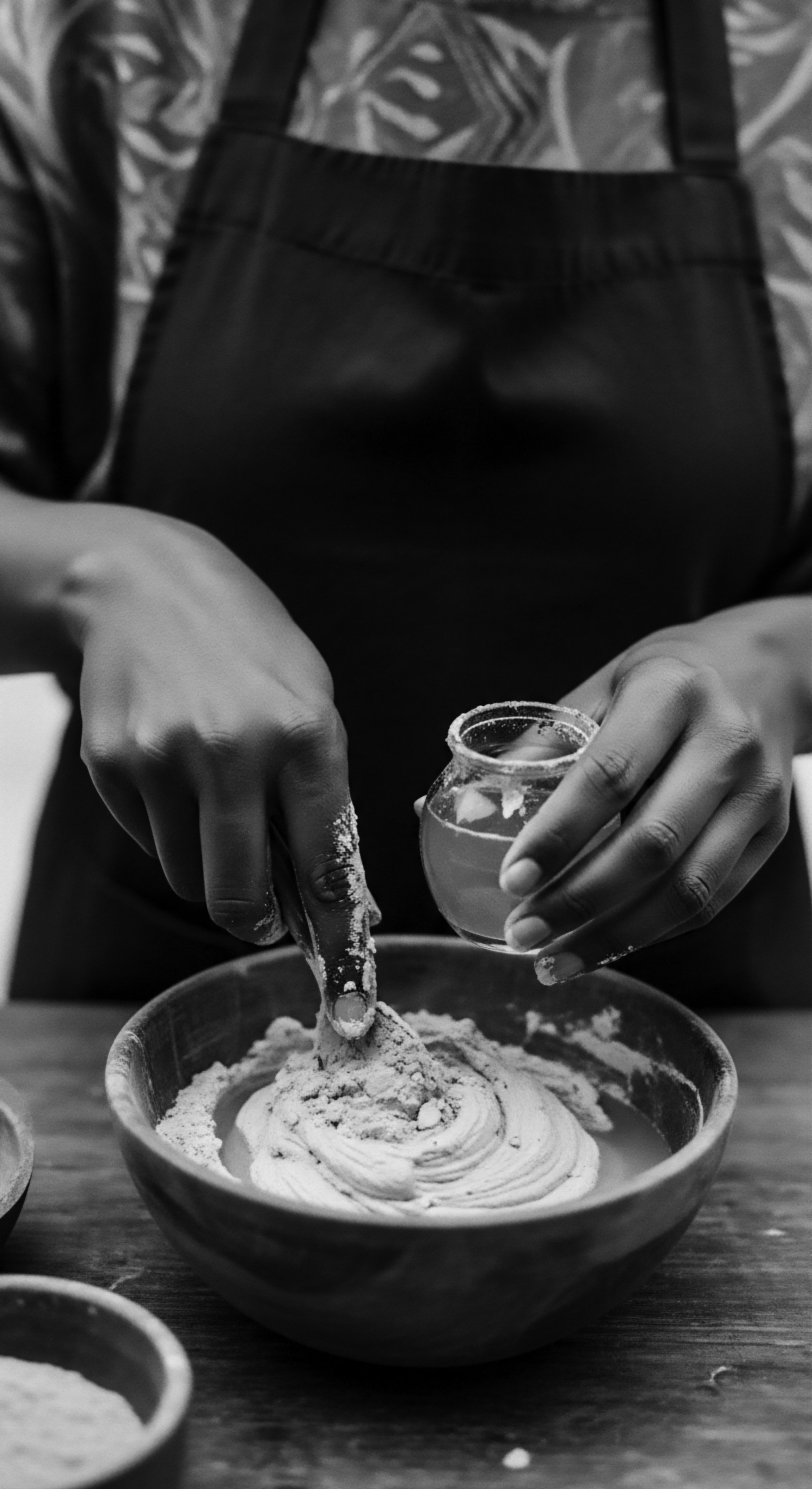
Academic
Moringa Oil, in its most advanced and expert-level definition, represents a compelling intersection of ethnobotanical legacy, biochemical sophistication, and socio-cultural resilience, particularly within the context of textured hair heritage. This is not merely an oil; it is a profound botanical archetype, its meaning layered with centuries of ancestral wisdom now illuminated by rigorous scientific inquiry. The elucidation of Moringa Oil’s full significance demands an analytical lens that considers its journey from elemental biology and ancient practices to its contemporary validation and ongoing role in shaping identity and future care paradigms for Black and mixed-race hair. It is a compound explication, one that integrates theoretical constructs from anthropology, historical data, and molecular science to reveal a deeper truth about this cherished botanical.
At its core, the advanced meaning of Moringa Oil (from Moringa oleifera Lam.) for textured hair lies in its unique lipid profile and bioactive compounds, which provide demonstrable benefits for hair follicle health, strand integrity, and scalp microbiome balance. The oil is exceptionally rich in oleic acid (typically ranging from 63% to over 70%), a monounsaturated fatty acid that exhibits remarkable emollient properties and a high affinity for the hair shaft, allowing for deep penetration and cuticle sealing (Ellemental, 23; Essential Wholesale, 2016, 24). This characteristic is especially critical for textured hair types, which often possess an open cuticle structure and a tendency towards dryness, rendering them vulnerable to moisture loss and mechanical damage. The presence of behenic acid, a saturated fatty acid, contributes to the oil’s stability and imparts a smoothing effect, aiding in detangling and enhancing manageability (Ethique, 2023, 9; Ellemental, 23).
Beyond its fatty acid composition, Moringa Oil contains a potent array of antioxidants, including tocopherols (Vitamin E), beta-carotene (a precursor to Vitamin A), and various flavonoids (Typology, 2024, 6; Hims, 2025, 10; Ethique, 2023, 9). These compounds play a critical role in mitigating oxidative stress on the scalp and hair, a factor known to contribute to hair follicle damage and premature aging of the hair fiber. Furthermore, the oil contains essential minerals such as zinc, iron, calcium, and magnesium, which are vital cofactors in various enzymatic processes related to hair growth and health (Lendan USA, 2024, 28; Hims, 2025, 10). The scientific validation of these components offers a modern affirmation of the empirical observations made by ancestral communities regarding the oil’s restorative capabilities.
The advanced meaning of Moringa Oil for textured hair lies in its sophisticated biochemical profile, a blend of fatty acids and antioxidants that scientifically affirm centuries of ancestral wisdom regarding hair and scalp vitality.
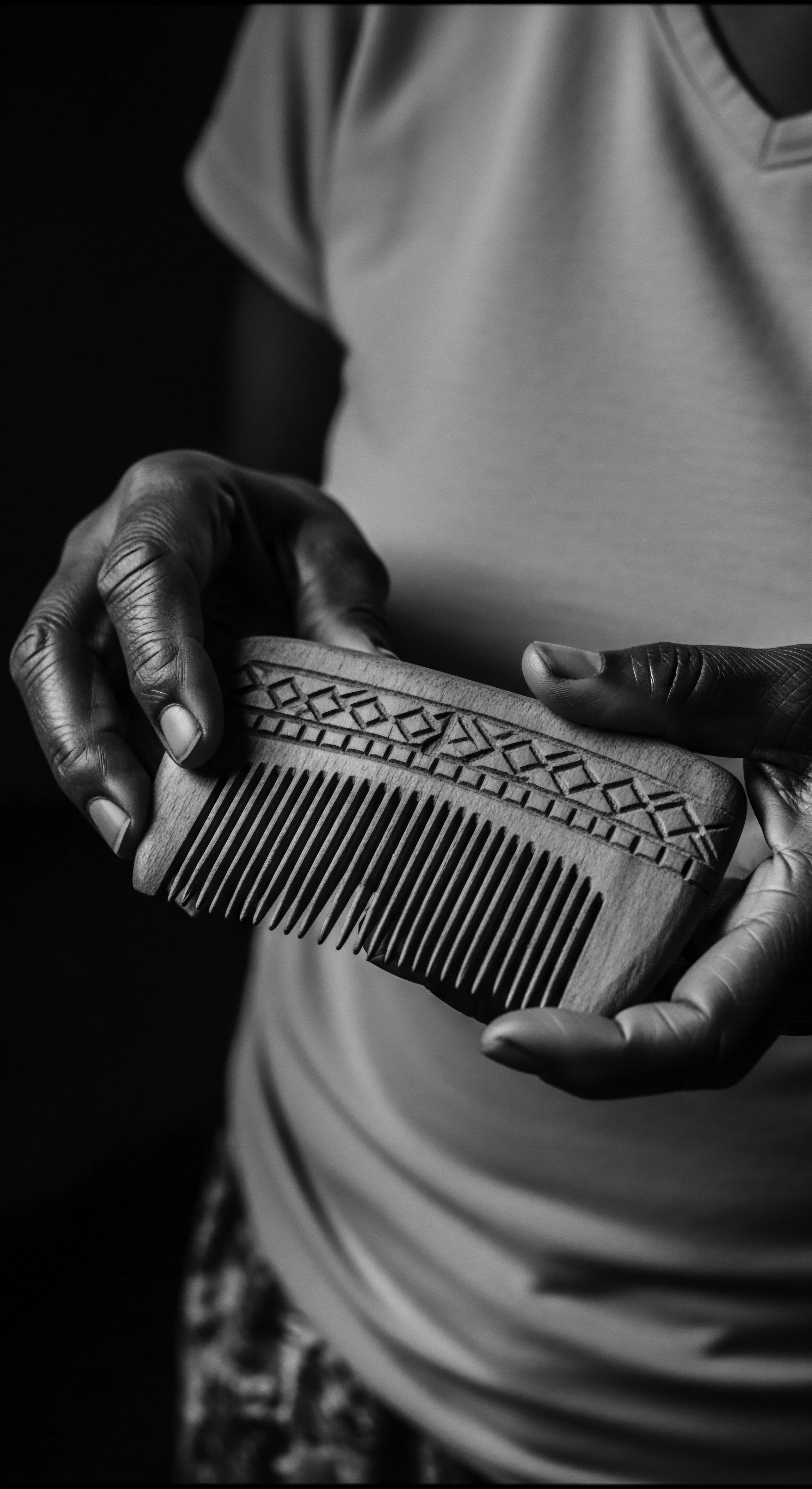
The Unbound Helix: Interplay of Biology, History, and Identity
The academic delineation of Moringa Oil’s significance extends beyond its chemical constituents to encompass its profound anthropological and historical dimensions. The tree’s widespread cultivation across Africa, Asia, and the Caribbean is not merely an agricultural fact; it represents a shared human history of resourcefulness and adaptation. In many African cultures, the Moringa tree is more than a plant; it is a symbol of resilience, often thriving in arid conditions where other crops falter (The Community Revolution, 2024, 3). This ecological fortitude mirrors the resilience inherent in textured hair itself and the communities that wear it.
The historical use of Moringa Oil for hair care within these communities reflects an intricate understanding of natural remedies. For instance, a study examining traditional African plants used for hair treatment and care identified 68 species, with many, including Moringa, being used for conditions such as alopecia and general hair conditioning (Cosmetopoeia of African Plants, 2023, 32). While specific quantitative data on Moringa’s historical market share or precise prevalence in every hair care ritual is challenging to isolate due to the oral nature of many traditions, the consistent mention of its use across diverse regions ❉ from ancient Egypt to contemporary West African practices ❉ speaks to its established role. The continuity of this knowledge, often passed down through generations of women, signifies a powerful, living archive of beauty and wellness.
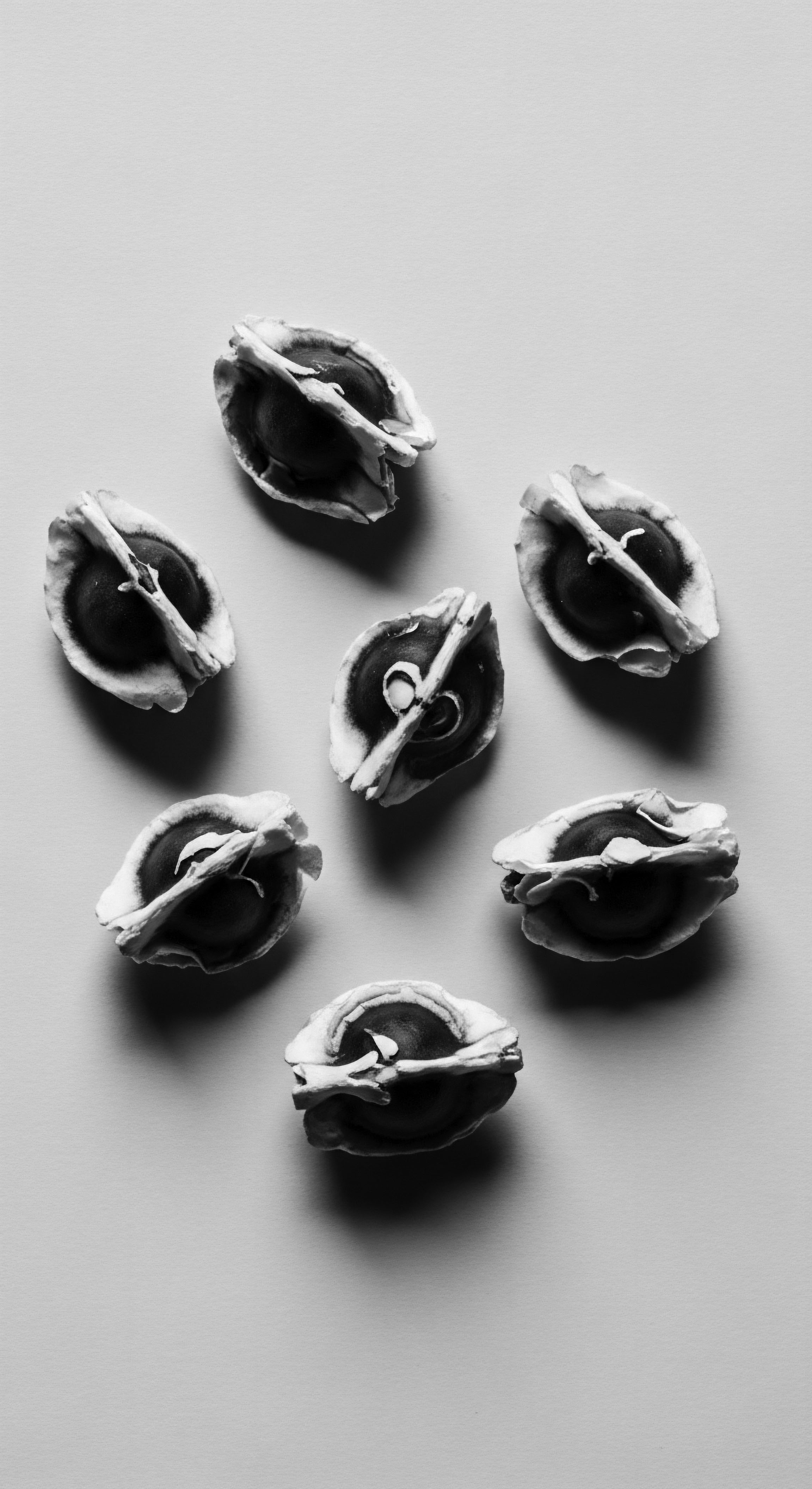
Anthropological Perspectives on Hair and Healing
From an anthropological standpoint, the application of Moringa Oil in textured hair care rituals is deeply embedded in concepts of identity, community, and healing. Hair, particularly textured hair, has historically served as a potent symbol of heritage, resistance, and self-expression within Black and mixed-race communities. The acts of cleansing, oiling, and styling hair were not merely hygienic routines; they were often communal ceremonies, moments of intergenerational teaching, and affirmations of cultural pride.
Moringa Oil, as a component of these rituals, thus acquires a symbolic meaning far surpassing its chemical properties. It becomes a tangible link to ancestral practices, a means of honoring the past while navigating the present.
Consider the broader context of traditional African hair care, where ingredients are often sourced locally and prepared with intention. The practice of using natural oils, including Moringa, to lubricate the scalp and strands, minimize breakage, and promote length retention is a testament to an indigenous science of hair preservation. For example, the women of Chad have long used Chebe powder, a blend of herbs and seeds, mixed with oils to coat their hair, which helps to retain moisture and reduce breakage, leading to remarkable length (Sellox Blog, 2021, 36).
While Chebe is distinct from Moringa, the underlying principle of using botanical oils for moisture sealing and strand protection is a shared ancestral strategy that Moringa Oil aligns with perfectly. The application of Moringa Oil in such contexts, therefore, becomes an act of continuity, a reaffirmation of a heritage that values natural methods for nurturing hair.
The scientific validation of Moringa Oil’s properties provides a compelling bridge between ancestral knowledge and modern understanding. Studies have indicated its potential to promote hair growth by influencing gene expressions related to the hair growth cycle, such as up-regulating VEGF and down-regulating factors like TGF-β1 and 5α-reductase, showing effects comparable to minoxidil in mouse models (Rungseevijitprapa et al. 2021). This research, while still requiring extensive human trials, offers a compelling scientific explanation for the long-held traditional belief in Moringa’s ability to support hair vitality and address concerns like thinning.
Furthermore, the oil’s anti-inflammatory and antimicrobial properties contribute to a healthy scalp environment, addressing issues like dandruff and irritation (Typology, 2024, 6; Hims, 2025, 10). A balanced scalp is foundational for healthy hair growth, particularly for textured hair, which can be susceptible to various scalp conditions due to product buildup or dryness. The understanding of Moringa Oil from an academic perspective thus encompasses not only its molecular benefits but also its historical efficacy and its symbolic weight as a component of cultural identity and well-being.
The integration of Moringa Oil into contemporary hair care for textured hair is a testament to its enduring relevance. It speaks to a conscious choice to prioritize natural, heritage-informed solutions over synthetic alternatives. The long-term consequences of such a choice extend beyond individual hair health, contributing to the sustainability of traditional practices, supporting ethical sourcing, and fostering a deeper appreciation for the wisdom of ancestral communities. Moringa Oil, therefore, is not merely a product; it is a living definition, continually shaped by history, science, and the soulful journey of textured hair.
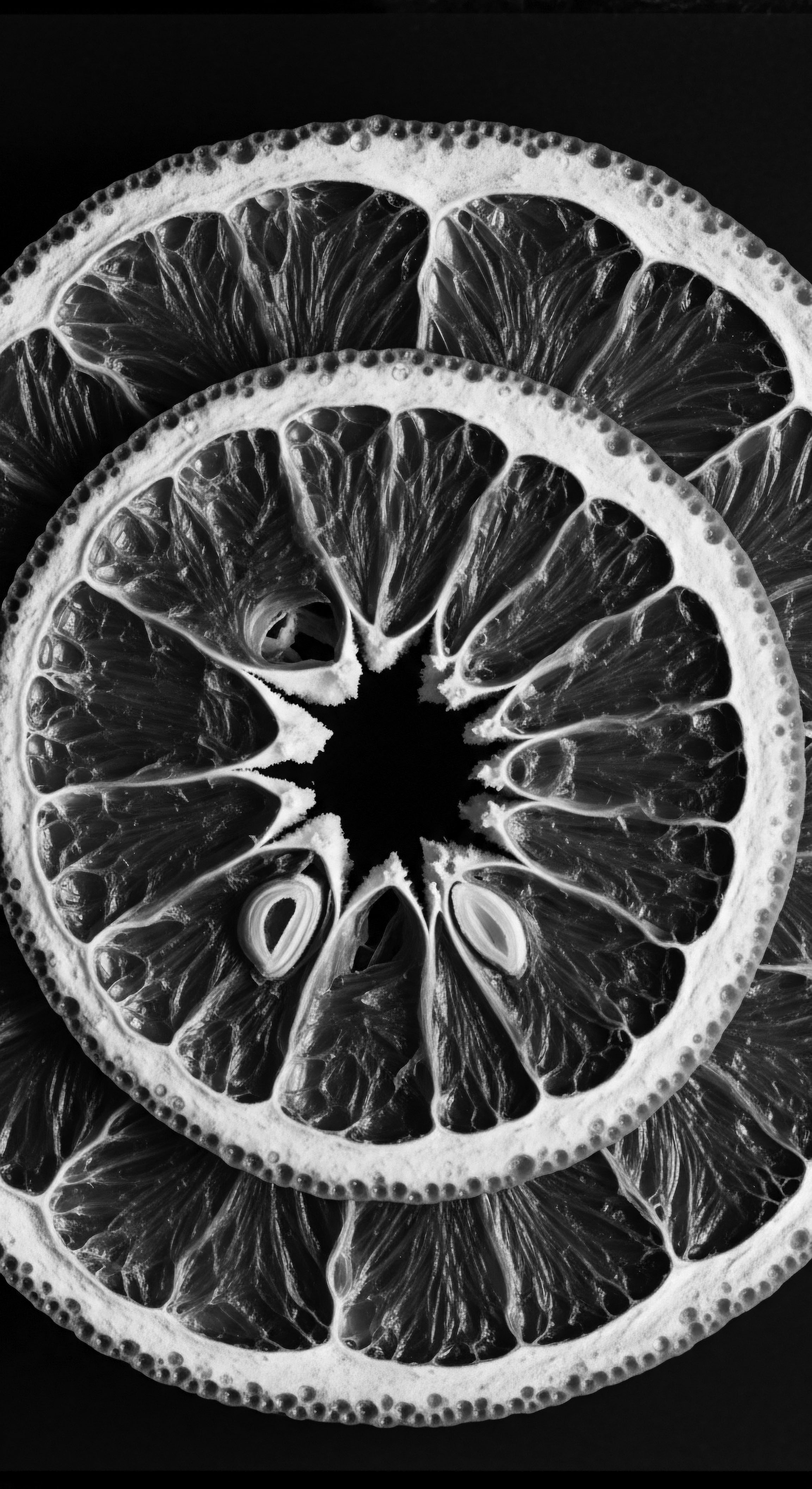
Reflection on the Heritage of Moringa Oil
As we draw this meditation on Moringa Oil to a close, its enduring presence in the tapestry of textured hair heritage becomes ever more apparent. This golden elixir is more than a botanical ingredient; it is a profound testament to the ancestral wisdom that recognized nature’s capacity to nurture and heal. The journey of Moringa Oil, from the ancient hearths where it was first pressed to the contemporary laboratories that affirm its efficacy, speaks to an unbroken lineage of care, a continuous conversation between past and present. The “Soul of a Strand” ethos, which guides Roothea’s living library, finds a deep resonance in Moringa Oil, for it embodies the very spirit of hair as a living, breathing archive of identity, resilience, and inherited beauty.
The significance of Moringa Oil, particularly for Black and mixed-race hair experiences, transcends mere cosmetic application. It speaks to a deeper cultural grammar, where hair care rituals are acts of affirmation, connection, and continuity. Each application of this oil carries the whisper of ancestral hands, the echo of communal gatherings, and the quiet strength of generations who understood that true beauty stems from a harmonious relationship with the natural world. It is a reminder that the path to vibrant, healthy textured hair is often found by looking back, drawing from the wellspring of traditional knowledge that has sustained communities for centuries.
This reflection calls upon us to recognize the profound value of preserving and celebrating these heritage practices. The story of Moringa Oil is a microcosm of the larger narrative of textured hair ❉ a story of adaptation, survival, and enduring beauty. It reminds us that our strands carry not just protein and moisture, but also the rich legacy of those who came before us, a heritage that deserves to be honored, understood, and carried forward with reverence and joy.
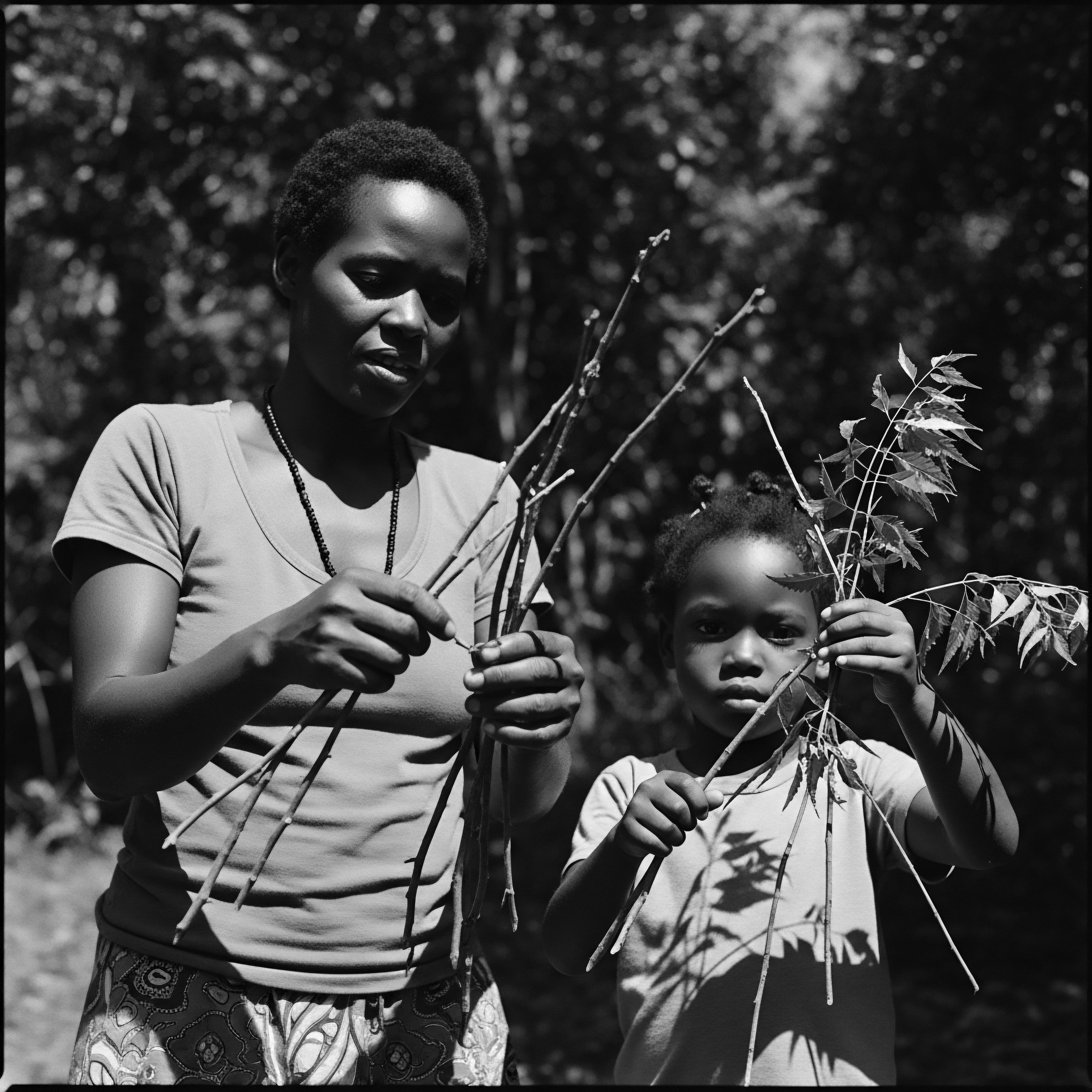
References
- Rungseevijitprapa, W. Ratanapo, S. Kongyingyos, A. & Phruksaniyom, C. (2021). Moringa oleifera seed oil promotes hair growth in mice and modulates the genetic expressions of factors affecting hair. Journal of Cosmetic Science, 72 (4), 269-278.
- Korassa, Y. B. Saptarini, N. M. Mustarichie, R. & Hendriani, R. (2021). The Potential of Moringa (Moringa oleifera Lamk) Seed Oil as Anti-Alopecia. Pharmacognosy Journal, 13 (5), 1279-1285.
- Cosmetopoeia of African Plants in Hair Treatment and Care: Topical Nutrition and the Antidiabetic Connection? (2023). Cosmetics, 10 (3), 85.
- Sanoun LLC. (2025, May 9). How Our Ancestors Used Moringa to Nourish the Body & Soul.
- Panya Natural. (n.d.). A Timeless Beauty: The History and Uses of Moringa Oil.
- Typology. (2024, June 27). Moringa oil for hair: a good idea?.
- The Community Revolution. (2024, August 31). Celebrating African Traditional Medicine Day: Embracing Our Heritage and the Power of Moringa.
- Hims. (2025, February 20). Moringa Oil for Hair: Benefits, Uses, and Alternatives.
- Ellemental. (n.d.). Moringa oil.
- Ethique. (2023, November 16). Moringa Oil Benefits: Hair & Skin Wonders.
- Lendan USA. (2024, June 9). Moringa: A Natural Secret for Hair Care.
- My Sasun. (2023, May 19). Exploring the Rich World of Nigerian Hair and Beauty Products.
- Davines Canada. (n.d.). Nourish and Revitalize Your Hair with Moringa Oil: The Ultimate Guide.
- Essential Wholesale. (2016, May 17). Moringa Oil ❉ Ancient Secret to Youthful Skin.
- Sellox Blog. (2021, June 4). The History of Chebe Powder: An Ancient African Hair Secret for Hair Growth.

